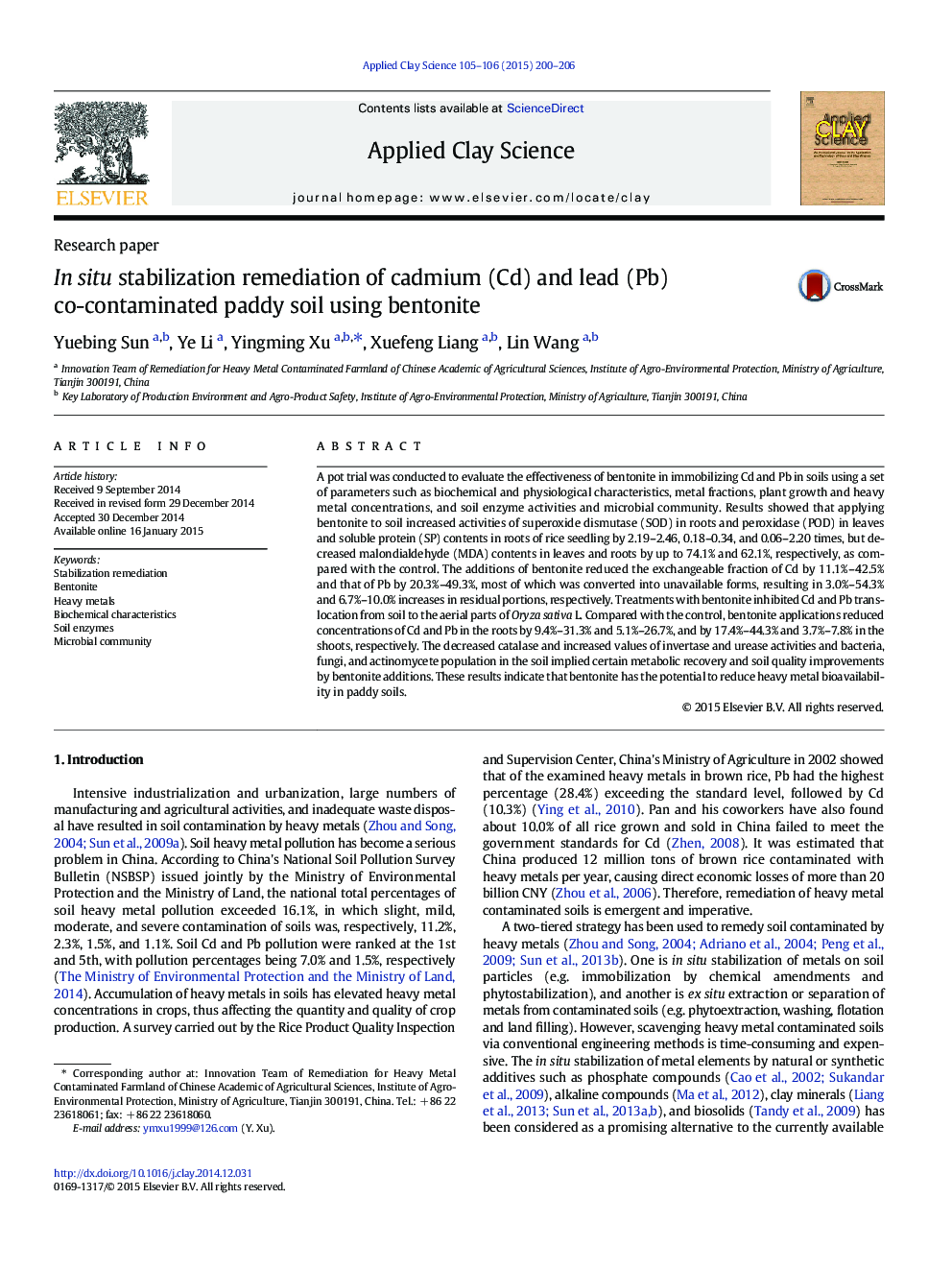| Article ID | Journal | Published Year | Pages | File Type |
|---|---|---|---|---|
| 1694577 | Applied Clay Science | 2015 | 7 Pages |
•Bentonite can alleviate heavy metal phytotoxicity to the plant.•Bentonite significantly decreased Cd bioavailability in soil and uptake in plant.•The addition of bentonite improves soil quality.
A pot trial was conducted to evaluate the effectiveness of bentonite in immobilizing Cd and Pb in soils using a set of parameters such as biochemical and physiological characteristics, metal fractions, plant growth and heavy metal concentrations, and soil enzyme activities and microbial community. Results showed that applying bentonite to soil increased activities of superoxide dismutase (SOD) in roots and peroxidase (POD) in leaves and soluble protein (SP) contents in roots of rice seedling by 2.19–2.46, 0.18–0.34, and 0.06–2.20 times, but decreased malondialdehyde (MDA) contents in leaves and roots by up to 74.1% and 62.1%, respectively, as compared with the control. The additions of bentonite reduced the exchangeable fraction of Cd by 11.1%–42.5% and that of Pb by 20.3%–49.3%, most of which was converted into unavailable forms, resulting in 3.0%–54.3% and 6.7%–10.0% increases in residual portions, respectively. Treatments with bentonite inhibited Cd and Pb translocation from soil to the aerial parts of Oryza sativa L. Compared with the control, bentonite applications reduced concentrations of Cd and Pb in the roots by 9.4%–31.3% and 5.1%–26.7%, and by 17.4%–44.3% and 3.7%–7.8% in the shoots, respectively. The decreased catalase and increased values of invertase and urease activities and bacteria, fungi, and actinomycete population in the soil implied certain metabolic recovery and soil quality improvements by bentonite additions. These results indicate that bentonite has the potential to reduce heavy metal bioavailability in paddy soils.
